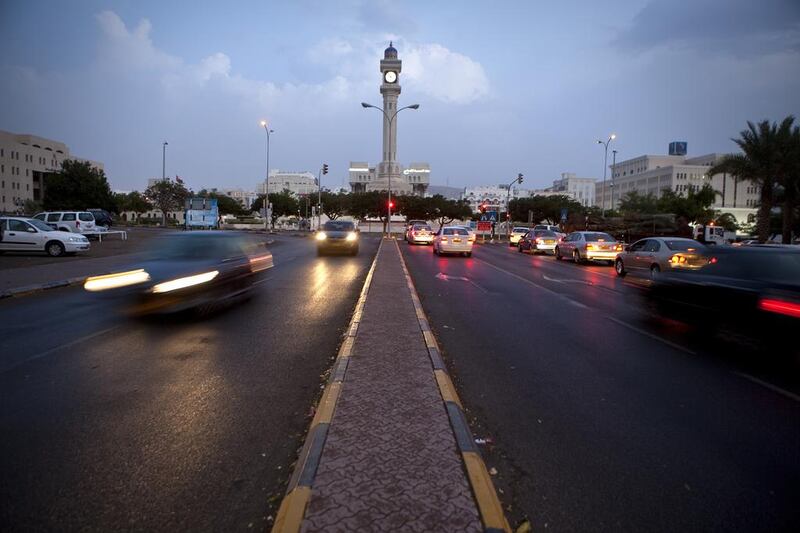MUSCAT // Ravi Thanghavelu’s father died instantly when a four-wheel drive vehicle coming from the opposite direction ploughed through the road divider at 120km per hour and crashed into the saloon car he was driving in Muscat.
When he woke up in hospital a day later, the 27-year-old was told by a doctor that he “was lucky to be alive” although both his legs and an arm were broken. His father, 62, who was sitting in the passenger seat next to him did not survive last October’s accident.
There were 692 people road deaths in 2016, about 8 per cent more compared to a year earlier, according to the Royal Oman Police. As part of the 33rd GCC Traffic Week, Oman launched a nationwide road-safety campaign on March 11.
"I was driving the car and saw the four-wheel losing control at the bend and the next thing ... I just blacked out and woke up a day later in hospital," Mr Thangavelu told The National.
Police said the driver of the other vehicle was 18 years old and had only got his driving licence 11 days earlier. He survived the crash but his 21-year old brother died.
Oman has the most number of road accidents in the Gulf region.
According to statistics at the GCC secretariat information office based in Muscat, Oman leads the way with 4,721 accidents closely followed by Saudi Arabia with 4,609 and Qatar was third with 4,322 in 2016. The number of accidents in Oman is 8.89 per 100,000 people in 2016 compared to 8.71 per 100,000 people in 2015, according to Oman Royal Police.
“We are leading the way in terms of the highest number of road accidents in the GCC countries. Most drivers involved in the accidents are young, in their twenties. They cause about 72 per cent of all accidents happening in the country. They just drive too fast,” said Captain Kareem Alawi, the police officer on duty at one of the many campaign stations around the country.
Police this week will be using video footage from previous fatal accidents, the distribution of leaflets and speeches in a week-long campaign at every major shopping mall in the country. More than 400 men and women in traffic police uniforms will be visiting educational institutions to promote road safety as part of the campaign.
Last year, three Emirati women and a 12-year-old boy from the same family as well as their Asian driver lost their lives when the SUV they were travelling in collided with a lorry on the motorway linking Muscat with Salalah, according to local media reports.
In the last three years, Oman has introduced a number of steps to reduce fatalities and injuries on the roads.
The measures include raising the minimum legal driving age from 17 to 18, imposing a hefty fine of 500 Omani rials (Dh4,770) if a driver jumps a red light, a two-day jail sentence for driving on hard shoulders and a six month driving ban for getting more than seven speeding tickets in a year.
Insurance companies paid a total of 123 million rials out for 4,721 accidents last year — about 11 per cent more compared to 2015, statistics from the ministry of commerce show.
“That kind of money puts a lot of financial pressure from on the insurance companies. It takes away their profits just because some drivers are too careless on the road,” said Juma Al Khawari, manager of Al Seeb Insurance Company.
foreign.desk@thenational.ae





